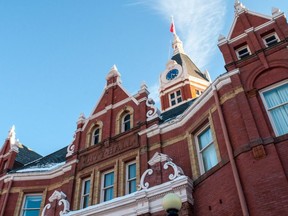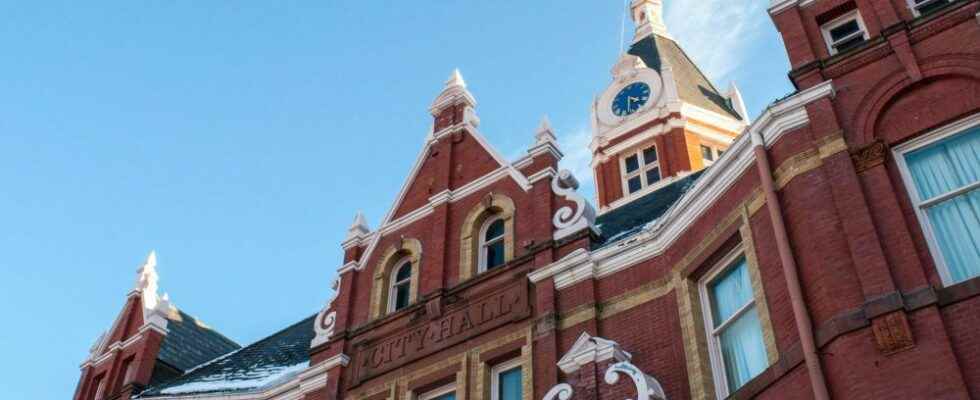Though there are still many local accommodators concerned with council’s adoption of a four-per-cent municipal accommodations tax, Stratford council voted to pass a bylaw Monday allowing city staff to make preparations to begin levying the tax on overnight visitors starting July 1, 2023.

Though the owners of several local bed and breakfasts publicly voiced their and their colleague’s concerns with how and why it will be implemented, Stratford council passed a bylaw that will allow city staff to begin preparations for a four-per-cent tourism tax on overnight accommodations in the city beginning in mid 2023.
At Monday’s regular council meeting, Stratford and Area Bed and Breakfast Association president RL Read and municipal-accommodation-tax liaison Murray Sanderson, as well as Acrylic Dreams Bed and Breakfast owner Karen Zamaria, spoke out against council’s June 27 decision to adopt a four- per-cent municipal accommodations tax that would be levied on overnight visitors beginning on July 1, 2023.
“I do, in fact, believe this will hurt accommodations and tourism in Stratford,” Sanderson said. “I believe it will reduce the number of overnight stays. Four per cent doesn’t sound like a lot, but … it’s going to either reduce overnight stays or restaurant meals or something because people have limited budgets.”
“With gas prices soaring as well as basic necessities such as the cost of food, shelter and clothing, and inflation now is 7.7 per cent, is this the time to consider implementing the passing of another tax for the consumer and tourist to pay?” Zamaria said. “Would this not repel them and make them second guess whether they would like to come to Stratford and stay overnight? Why is there such haste to have this pass so quickly at this time?”
Zamaria, Sanderson and Read each expressed a number of other concerns with the tax. They included the current lack of a short-term-rental-accommodations-licensing bylaw to ensure all short-term rentals in the city would be responsible for levying the tax and not just those that are currently licensed; the increased administrative burden on small accommodators that will need to seperate out their accommodations charges from ancillary charges for things like food and parking for the purpose of levying the tax; and the city’s lack of in-person consultation with accommodators prior to council’s decision to adopt the tax at the end of June.
With respect to the stakeholder consultation, city CAO Joan Thomson said council originally approved the tax in principal in February 2020 and an extensive public consultation was to follow.
“The public-consultation process was to include … information on the website, social media, newspaper, the establishment of a fact sheet, creation of a survey, submission of comments by email, and meetings with stakeholders, including the holding of two public open houses,” Thomson said.
While the online survey was made available between February and April of that year and only seven of the 50 combined survey and email responses were in favor of the tourism tax while the rest were opposed, Thomson said in-person consultations on the tax with the majority of local stakeholders had to be canceled as a result of pandemic restrictions.
“The (public-consultation) process did change in 2022. … The pandemic has changed the previous approach to meeting in person and holding in-person open houses as during COVID it was not appropriate to meet in person. We had a public-consultation in place, but COVID changed things over two years and a new process was identified,” Thomson said, adding that the city will hold public open houses and meet with stakeholders to collect feedback and provide information on how the tax will be implemented prior to July of next year.
In November 2020, council put the plan to adopt a municipal accommodations tax on hold and directed staff to begin a review of the what was then the Stratford Tourism Alliance and develop an overall tourism strategy for the city.
“Subsequently, tourism was reorganized and became Destination Stratford with a new mandate and a new structure … with a new board,” Thomson said. ” … It was determined with this stage and structure that a tourism strategy for the city was also not immediately required.”
In response to the concern about the lack of a licensing bylaw for short-term-rental accommodations, which were recently permitted in the city’s new comprehensive zoning bylaw, Thomson said a report on that bylaw will be going to subcommittee before the end of this month and the licensing bylaw will likely be in place long before the tourism tax comes into effect next year.
While some councilors at Monday’s meeting expressed concern with the confusion around the municipal-accommodations-tax consultation process and made it clear they wanted to see extensive, in-person consultation with stakeholders and the public around how the tax will be implemented over the next year , the majority of council maintained their support for the tax.
“I actually see this (tax) as a really good opportunity to have some funds available to do the kinds of (licensing-bylaw) enforcement that needs to be done so we can actually bring in all of the accommodators that are out them (and have them) licensed and legal,” Coun. Kathy Vassilakos said.
Vassilakos also noted that city staff will have time over the next year to consult with other municipalities that have implemented the tax to determine best practices for how local accommodators can levy it from guests and how the city can support them in establishing that process.
“I also would like to consider a way of compensating small accommodators who have to collect the tax,” Coun. Jo-Dee Burbach added. “We could use a portion of the (tax revenue) to then help carry that (administrative) cost for small accommodators. I think that would be fair.”
Stratford council voted 9-1 in favor of passing the municipal-accommodations-tax bylaw Monday, with Coun. Cody Sebben as the sole dissenting vote and Coun. Brad Beatty absent from the meeting.
Adopted by many municipalities across Ontario, a municipal accommodations tax is meant to supplement city tourism investments through revenues raised from visitors. While not intended to fully replace municipal tourism investments, the tax provides additional money for services that benefit both visitors and residents while offering a stabilized base funding for tourism.
